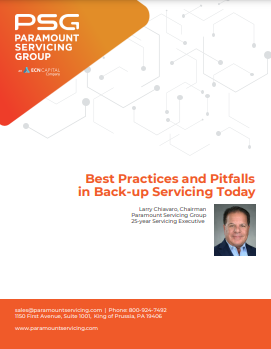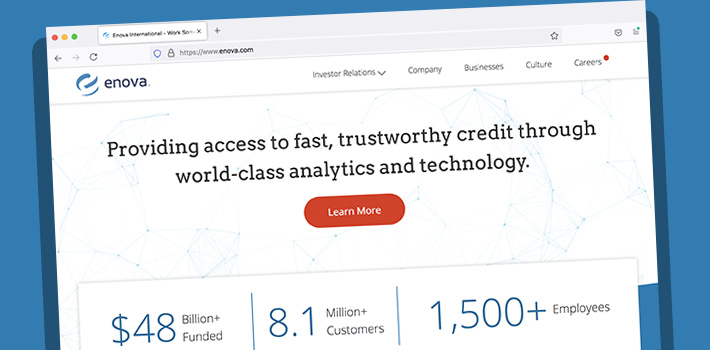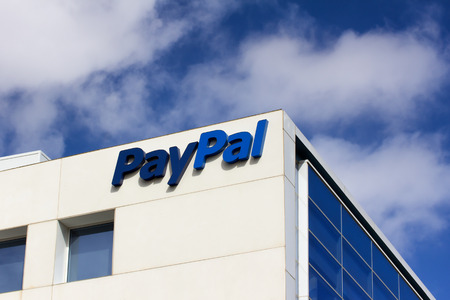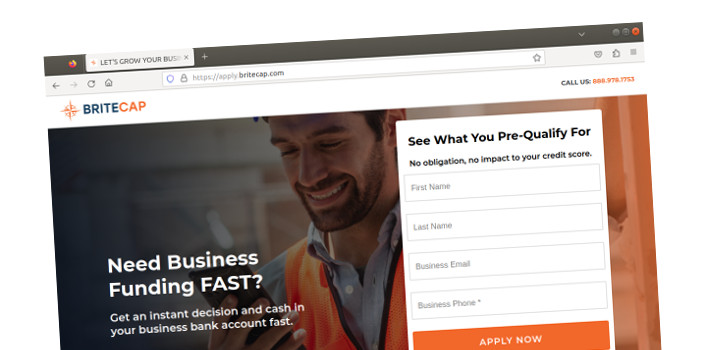Business Lending
Square Loans Originated $5.7B in Business Loans in 2024
February 25, 2025Block subsidiary Square Loans had a huge Q4, originating $1.54 billion in business loans. That brought the year-end total to $5.7 billion, enough to continue their streak as the largest online business lender that deBanked tracks. Enova is #2.
Square Loans customers typically experience growth when taking the funds. Block CEO Jack Dorsey said this of the program in the previous quarter:
“In 2013, we began offering capital to sellers because we saw a meaningful gap in the market: small businesses were often denied access to credit, in the same way they were once denied access to accepting credit cards. We utilized our deep understanding of the seller and their business to build a technology that invited them to accept a loan with transparent rates, and pay back simply by making sales to their customers. We called it Square Capital (which is now known as Square Loans).
Since then, we’ve underwritten more than $22 billion in loans globally, with aggregate loss rates below 3%. And we’ve proven we can expand access: 58% of Square Loans are to women-owned businesses, and 36% are to minority-owned businesses, both of which are higher than the benchmark we track If our sellers grow, we grow – and we believe Square Loans has a direct impact on our sellers’ growth. Sellers who take out a Square Loan grew on average 6% faster than sellers who did not take out a loan.
Many financial products trap borrowers in cycles of revolving debt. We don’t allow customers to take on new loans if they have an overdue balance. And repayment is built into how our products work: Square sellers repay loans through a fixed percentage of their revenue, creating a manageable-real-time payment flow.
On credit risk management, we have a long history of maintaining stable loss rates and these products act as working capital, which means they are usually short in duration. What that means for us is that a dollar used on our balance sheet can turn multiple times, driving capital efficiency while providing us with high-quality data to continually refine our technology-driven underwriting.”
-Jack Dorsey
What to Look Out For in Back-up Servicing
February 17, 2025 “There is a misconception that back-up servicing is merely an Insurance Policy,” states Larry Chiavaro, Chairman of Paramount Servicing Group, in a recently released White Paper on the subject. “That is not the case in today’s rapidly changing markets. Fluctuating interest rates, the creation of many new asset classes, and emerging technology have created many new opportunities for all.”
“There is a misconception that back-up servicing is merely an Insurance Policy,” states Larry Chiavaro, Chairman of Paramount Servicing Group, in a recently released White Paper on the subject. “That is not the case in today’s rapidly changing markets. Fluctuating interest rates, the creation of many new asset classes, and emerging technology have created many new opportunities for all.”
The 12-page paper on back-up servicing dispels many myths while educating lenders about what to look out for when choosing a servicer. It is clear that the selection process should not be an afterthought and can be very consequential for one’s business. Chiavaro breaks it down well. You can download the paper here.
Shopify Capital Originates ~$3 Billion in Merchant Funding in 2024
February 11, 2025 Shopify Capital originated ~$3 billion worth of MCAs and business loans in 2024, up by 50% over the prior year. For the sake of comparison, online small business lender Enova originated $4 billion in 2024. Shopify is an e-commerce platform first, however, and is growing on all fronts
Shopify Capital originated ~$3 billion worth of MCAs and business loans in 2024, up by 50% over the prior year. For the sake of comparison, online small business lender Enova originated $4 billion in 2024. Shopify is an e-commerce platform first, however, and is growing on all fronts
“2024 was a stand-out year for Shopify,” said Shopify President Harley Finkelstein. “We seized every opportunity to fuel our growth and it showed in the results quarter after quarter. Heading into 2025, we are committed to making entrepreneurship more common and further establishing Shopify as the go-to commerce platform for businesses of all sizes. With our proven track record, the agility of our platform, and our relentless focus on merchant success, we like our odds in this evolving technology landscape, and are excited about the opportunities it brings for Shopify and our merchants.”
Enova: Record Q4 originations with little competition in sight
February 5, 2025 Enova originated $1.1B in small busines loans in Q4 2024. And it’s a wide open market, according to the company. “We’ve not seen kind of a sustained competitive push on either the consumer or small business side in a very, very long time,” said Enova CEO David Fisher during the quarterly earnings call. “And again, I think evidenced by our ability to take really significant volume in Q4 shows that to be the case.”
Enova originated $1.1B in small busines loans in Q4 2024. And it’s a wide open market, according to the company. “We’ve not seen kind of a sustained competitive push on either the consumer or small business side in a very, very long time,” said Enova CEO David Fisher during the quarterly earnings call. “And again, I think evidenced by our ability to take really significant volume in Q4 shows that to be the case.”
Fisher added that “you do see people kind of poking in and out” of the market “but they tend to be small and they tend to be fleeting.”
The economy is also playing into their success.
“On the small business side, I would say if anything, we feel better about the health of small businesses across the country,” Fisher said. “I think they’ve had one more year to build strength, kind of following the pandemic and following the high inflationary years of 2022, early 2023. And so we’re feeling also very good about the general health of small businesses.”
Fisher cited a joint report it prepared with Ocrolus this past November in which a survey found “that small businesses feel increasingly optimistic about future growth as over 90% of small business owners are expecting moderate to significant growth over the next six months.” It also showed “a meaningful shift in where small businesses are first seeking capital as nearly 75% of small business owners reported bypassing traditional banks in favor of alternative lenders like Enova.”
Charge-offs have been on a downward trend for Enova as well and the company feels good about how diversified its portfolio is.
PayPal: Our merchants grow after taking a business loan from us
February 5, 2025 PayPal is feeling optimistic about its business loan program now that it has been reset on a path toward growth. “As the business matures, PayPal Business Loan offers more traditional merchant financing to match the increasing complexity and multichannel nature of larger businesses,” said CEO Alex Chriss during the Q4 earnings call. “Our business financing solutions increase loyalty and engagement, driving the PayPal flywheel. Merchants typically increase their PayPal volume by 36% after adopting PayPal Working Capital and 16% after taking a PayPal Business Loan. Our merchant lending originations were $3 billion in ’24, demonstrating our leadership and that there’s plenty of room to grow to support our customers.”
PayPal is feeling optimistic about its business loan program now that it has been reset on a path toward growth. “As the business matures, PayPal Business Loan offers more traditional merchant financing to match the increasing complexity and multichannel nature of larger businesses,” said CEO Alex Chriss during the Q4 earnings call. “Our business financing solutions increase loyalty and engagement, driving the PayPal flywheel. Merchants typically increase their PayPal volume by 36% after adopting PayPal Working Capital and 16% after taking a PayPal Business Loan. Our merchant lending originations were $3 billion in ’24, demonstrating our leadership and that there’s plenty of room to grow to support our customers.”
PayPal offers this product in the US, Germany, France, the Netherlands, UK, and Australia.
“The PayPal Working Capital product allows businesses to access a loan or cash advance for a fixed fee, based on their annual payment volume processed by PayPal,” the company states. “The PayPal Business Loan product provides businesses with access to short-term financing for a fixed fee or interest based on an evaluation of the applying business as well as the business owner. In the U.S., these products are provided under a program agreement with an independent chartered financial institution.”
Between them, PayPal is one of the largest online business lenders in the US.
With Trump’s Freeze on New Regulations, What to Make of the New CFPB Rules?
January 23, 2025 On January 20, Trump’s ceremonial display of taking action and signing orders on his very first day might warrant a closer look for those in the small business finance industry. That’s because he signed a regulatory freeze order that could potentially affect rules promulgated by the CFPB on small business loan data collection that have yet to go into effect.
On January 20, Trump’s ceremonial display of taking action and signing orders on his very first day might warrant a closer look for those in the small business finance industry. That’s because he signed a regulatory freeze order that could potentially affect rules promulgated by the CFPB on small business loan data collection that have yet to go into effect.
Specifically Trump’s order not only puts a freeze on issuing new rules but also mandates rules be withdrawn if they’ve been sent to the Office of the Federal Register. And then lastly, and most relevant, it orders agency heads to “consider postponing” any rules that have been published or “any rules that have been issued in any manner but have not taken effect, for the purpose of reviewing any questions of fact, law, and policy that the rules may raise.” It asks for a 60-day review period overseen by an agency head appointed or designated by Trump to review and approve the rule.
“Should actions be identified that were undertaken before noon on January 20, 2025, that frustrate the purpose underlying this memorandum, I may modify or extend this memorandum, to require that department and agency heads consider taking steps to address those actions,” the order concludes.
BriteCap Financial Ramps Up Team, Ready For Growth
December 20, 2024 The stream of announcements coming out of BriteCap Financial garnered notice. It started with news of a $150M credit facility back in August, followed by announcements of a new CEO, CFO, CCO, VPs, and more. The new CEO, Richard Henderson, whose CV includes previous roles at CAN Capital, Marlin Capital Solutions, and Direct Capital, told deBanked that the company wanted to have the right team in place to carefully grow the business. BriteCap, which is part of the North Mill family of companies, offers attractive term loans to small businesses.
The stream of announcements coming out of BriteCap Financial garnered notice. It started with news of a $150M credit facility back in August, followed by announcements of a new CEO, CFO, CCO, VPs, and more. The new CEO, Richard Henderson, whose CV includes previous roles at CAN Capital, Marlin Capital Solutions, and Direct Capital, told deBanked that the company wanted to have the right team in place to carefully grow the business. BriteCap, which is part of the North Mill family of companies, offers attractive term loans to small businesses.
As part of the plan, the company is looking to add not just new brokers but the right brokers, especially given the upstream programs they offer to merchants. “We’re being very selective on who we onboard,” said Henderson. “We’re trying to make sure that we’ll use that to get to scale, but also to build powerful relationships with those brokers where it’s a true partnership.”
BriteCap has developed an online checkout system to streamline the funding process. It can be configured to work with however the broker is used to working. They’ve focused a lot on the mobile experience so that a merchant need not even be in front of a computer to go through it.
One notable advantage to BriteCap is precisely that affiliation with the North Mill family because it opens up the possibility of not just working capital as a solution but also equipment finance. According to Henderson, the potential crossover between the products works well especially when the deals have been originated in the right context. That context includes the best practices and professionalism that equipment finance brokers typically operate within.
Among the C-suite executives to recently join BriteCap are Pushkar Choudhuri as Chief Financial Officer and David Lafferty as Chief Credit Officer. The timing of everything aligns with the firm’s economic sentiments. Henderson said that he believes optimism is higher now and growing.
“…generally speaking, we’ve seen demand picking up and we have a pretty bullish view on the economy moving forward,” he said. “I think we’re entering into a very good time in our space.”
SBA Names Members to its Small Business Lending Advisory Council
December 11, 2024The results are finally in. After a six-month review period, the SBA finally announced the applicants that have been approved to serve on its inaugural small business lending advisory council.
They are:
- Paul Brown, Managing Partner, Michigan eLab Investment Co.
- Sheryl Cameron, Executive Director SBA Solutions, JPMorgan Chase
- Kevin Carey, Interim President and CEO, American Hotel and Lodging Association
- Ellis Carr, President and CEO, CDC Small Business Finance
- Jill Castilla, President and CEO, Citizens Bank of Edmond
- Tammy deClercq, COO Head of Operations SBA, Lendistry SBLC
- Jeff Dick, Chairman and CEO, MainStreet Bank (VA)
- Nicole Dilts, VP of Commercial Solutions, Michigan State University Federal Credit Union
- Maggie Ference, SVP Small Business and SBA Director, Huntington National Bank
- Jeff Hansel, 1st VP, Rockland Trust Company
- Amy Hereford, President and CEO, LiftFund Inc.
- Ernest Hunter, CEO, Frenchy’s
- Duane Lewis, Interim Co-CEO, Black Business Investment Fund Inc.
- Deborah Partin, SVP of Lending, Rural Enterprises of Oklahoma, Inc.
- Amy Patel, EVP Head of Commercial Distribution, TD Bank
- Giovanna Piovanetti, Executive President, Corporacion para el Financiamiento Empresarial del Comercio y De Las Comunidades
- Lane Rhodes, VP Senior Loan Officer, Live Oak Bank
- Mark Robertson, President and CEO, PCR Small Business Development Corporation
- April Schneider, Head of Small and Business Banking, Wells Fargo
The published list is about six members short of the planned 25 so it is likely a few more will be added. To be eligible, applicants had to have “experience and technical expertise in such areas as commercial lending, small business finance, government-guaranteed lending, small business advocacy or advisement, and expertise needed to provide advice on SBA’s loan programs.”
LiftFund and Lendistry are arguably the only two from the fintech space.





























